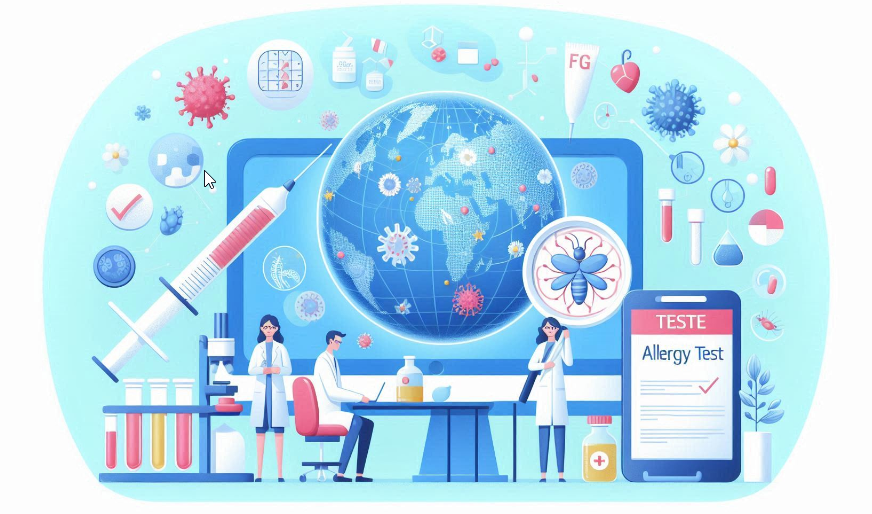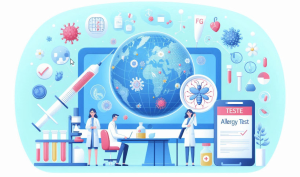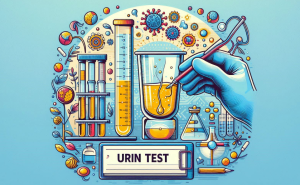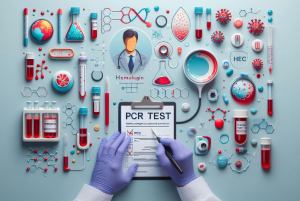What is an Allergy Test?
An allergy test is a medical procedure used to identify specific substances (allergens) that trigger an allergic reaction in an individual. Allergies occur when the immune system overreacts to a harmless substance, such as pollen, dust mites, or certain foods. Allergy tests can help pinpoint these triggers, allowing for better management and treatment of allergies.
Why Do You Need an Allergy Test?
An allergy test is recommended if you experience symptoms suggestive of an allergy, such as:
- Respiratory symptoms: Sneezing, runny or stuffy nose, itchy eyes, wheezing, or difficulty breathing.
- Skin reactions: Hives, eczema, or itching.
- Digestive issues: Nausea, vomiting, diarrhea, or abdominal pain.
- Severe reactions: Anaphylaxis, a life-threatening allergic reaction.
Identifying the specific allergens responsible for your symptoms allows for targeted avoidance and personalized treatment plans.
What Does an Allergy Test Measure?
Allergy tests assess your body’s immune response to various allergens. They can measure:
- Specific IgE antibodies: Blood tests measure the levels of immunoglobulin E (IgE) antibodies, which are produced in response to specific allergens.
- Skin reactions: Skin prick tests and intradermal tests involve exposing your skin to small amounts of allergens to observe for any reactions like redness, swelling, or itching.
Preparing for the Test
Preparation for an allergy test might involve:
- Discontinuing antihistamines: Your doctor might advise you to stop taking antihistamines for a few days before the test, as they can interfere with the results.
- Skin preparation: For skin tests, avoid applying lotions or creams to the test area beforehand.
- Fasting: Some blood tests might require fasting, so follow your doctor’s instructions.
Understanding the Results
The results of allergy tests are usually interpreted by an allergist or immunologist. They will help you understand:
- Positive results: Indicate an allergy to the specific allergen tested. The severity of the reaction might also be assessed.
- Negative results: Suggest no allergy to the tested allergen.
- Inconclusive results: Might require further testing or evaluation.
Risk Factors and Prevention
Various factors can increase your risk of developing allergies:
- Family history: Allergies can have a genetic component.
- Environmental exposures: Early exposure to certain allergens might increase the risk of developing allergies later in life.
- Other health conditions: Conditions like asthma or eczema might coexist with allergies.
While complete prevention might not be possible, you can manage allergies by:
- Avoiding triggers: Once allergens are identified, avoiding exposure to them is crucial.
- Medications: Antihistamines, decongestants, and other medications can help manage allergy symptoms.
- Immunotherapy: Allergy shots or sublingual immunotherapy can gradually desensitize your immune system to specific allergens.
Remember, allergy tests are valuable for identifying triggers and developing effective management strategies. If you suspect allergies, consult an allergist or immunologist for proper testing and guidance.

 7351982473
7351982473











